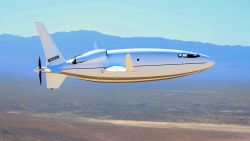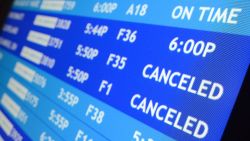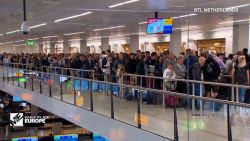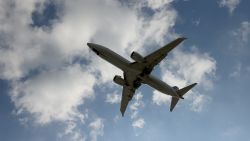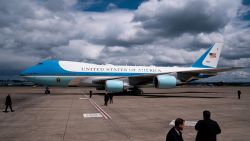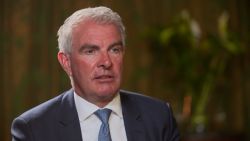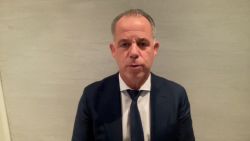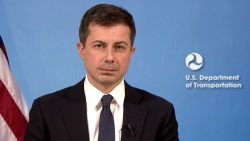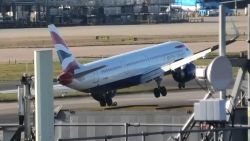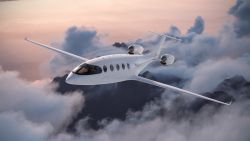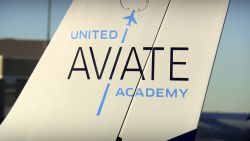Boeing’s future rides on the success of the 737 Max. But all of those planes remain grounded, waiting for the world’s aviation regulators to approve a software fix that will make them safer to fly.
The 737 Max does not appear close to flying again. Aviation experts doubt global regulators will act in concert to approve the 737 Max for flight, because serious questions remain about how and why the FAA approved the 737 Max for flight and whether it rushed the certification process.
The world’s aviation authorities have lost confidence in the US Federal Aviation Administration. In the past when planes were grounded, other regulators followed the FAA’s lead. When the FAA approved grounded planes to fly again, regulators around the world similarly let them fly too. That’s what happened when the Boeing 787 Dreamliner was grounded because of battery problems in 2013.
But this time, getting the FAA to sign off on the fix won’t by itself solve Boeing (BA)’s problems. That could be troubling news for Boeing (BA) as it tries to return the planes to service as soon as possible.
The 737 Max is by far Boeing’s bestselling plane, with orders for 5,000 of the workhorse single aisle jet on its books. Boeing’s profit fell 21% last quarter because it halted 737 Max orders during grounding, and it has to reimburse airlines that have to use alternate planes. Boeing has already spent at least $1 billion on a software fix it hopes can get the planes back in the air.
The stakes could not be higher for the company, America’s largest exporter.
Damaged credibility
Boeing is seeking regulatory approval for its software fix a 737 Max automatic safety feature, which is the focus of the investigations into two recent fatal crashes. Questions about how the plane was certified in the first place means lifting the grounding won’t be easy.
The FAA’s certification process is under investigation by Congress and the Department of Transportation.
“Clearly confidence in the FAA as the gold standard in aviation safety has been shaken,” DOT Inspector General Calvin Scovel testified at a Senate hearing last month.
If global aviation regulators don’t agree to end the 737 Max’s grounding, that could create costly delays for Boeing. More than 80% of the 737 Max planes that are grounded are flown by airlines outside the United States. Boeing will need those aviation authorities around the globe to lift their orders grounding the jets for their customers to begin flying the planes once again.
“It will be jarring if other countries don’t immediately follow. I’ll be disappointed. But I guess I won’t be too surprised if other countries thumb their nose at us and don’t follow immediately,” said Jeffrey Guzzetti, a former director of the FAA’s accident investigation division.
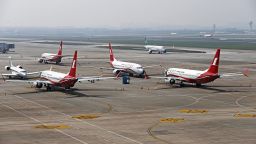
Authorities from nine different countries met for a week’s worth of meetings in Seattle recently to discuss problems with the 737 Max. The group, dubbed the Joint Authorities Technical Review, was headed by Chris Hart, the immediate past chairman of National Transportation Safety Board, which is independent from the FAA.
Hart told CNN Business he is “not confident at all” that countries will unanimously and simultaneously approve the 737 Max’s return to service. Instead, each country may approve the plane on its own schedule.
Aviation regulators have good reason to be skeptical about following the FAA’s lead when lifting the grounding.
Reports about the plane’s certification have revealed a process in which Boeing, not the regulator, was calling many of the shots, and self-certifying the safety of many features.
The FAA followed the company’s desire to allow pilots of the original version of the 737 to fly the Max with only a brief online instruction rather requiring full simulator training. The ability to move pilots from one plane to the other was a selling point for Boeing as it took orders for the planes. Boeing CEO Dennis Muilenburg said last month that the company still believes that online training is all that will be needed when the plane starts flying again, but that it will follow whatever regulators require.
Hart said he believes the FAA is “still recognized as the gold standard” for aircraft certification. But questions about its certification process for the Max were at the core of the meeting in Seattle.
“We are not here to determine when to un-ground the plane,” he said. “We are here to determine if the certification was robust and if it wasn’t robust, what needs to be done to make it robust in the future.”
Boeing and the FAA both issued statements saying they were pleased to participate in the meeting. The FAA said the joint authorities will take a comprehensive look at its certification process. Boeing said it’s confident the regulatory review will ensure the solution will “get it right.”
But the process to get the planes back in the air around the globe will be an uphill battle for Boeing.
“It’s hard to tell what is based upon genuine disagreement about safety, what is based upon lack of trust, and what is based upon not wanting to be seen as rubber stamping the FAA approval,” said Richard Aboulafia, aerospace analyst for the Teal Group. “But that’s three reasons why it’s going to be different this time.”



